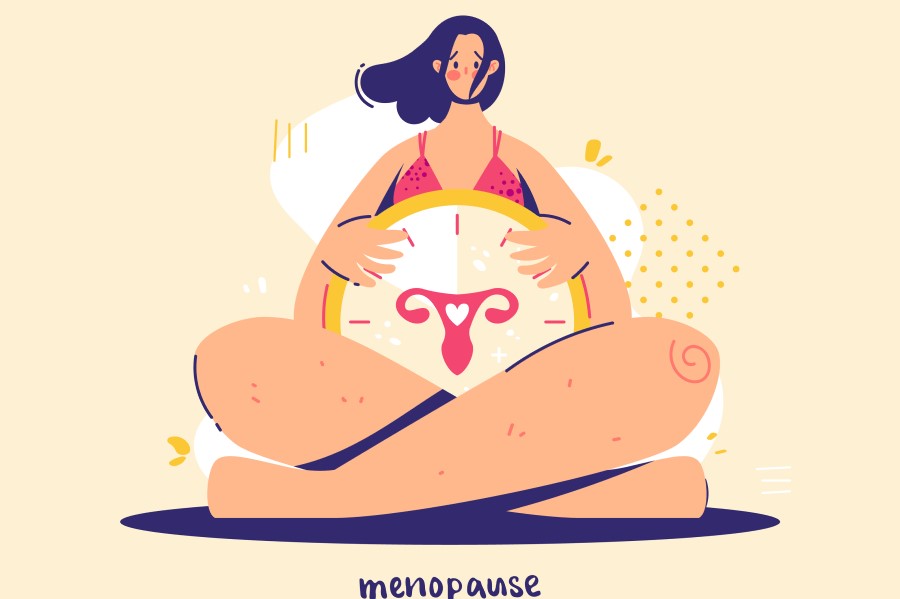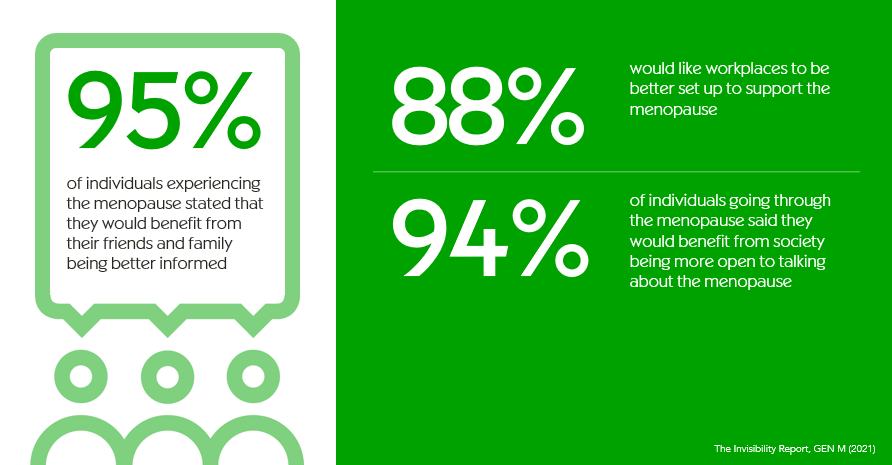Not just ‘women’s issues’: how to support menopause needs in the workplace

Together with Manchester Metropolitan University (MMU), we are working to change this. We have embarked upon a pioneering educational research programme that will not just provide information and support to individuals experiencing the menopause, managers and colleagues, but will stimulate cultural and behavioural change in the workplace – utilising the principles of behavioural science and health psychology.
It is acutely evident that the menopause is a shared experience for so many individuals, but a knowledge gap, and a support gap, exists. This leads to the menopause having limited meaningful visibility in society, and as a result, the workplace.
A lack of knowledge and being unprepared
The Invisibility Report from Gen M reveals that more than half of the women surveyed could only name three of the 48 symptoms associated with the menopause. In addition, 49% couldn’t name any phases of the menopause, even when prompted, and almost half did not recognise the term perimenopause.
As a result, two in three women indicated that they were shocked and unprepared for the menopause when it did occur.
Invisibility and a lack of support in the workplace
When it comes to the workplace, the Invisibility Report found that only one in five women believe their employer is well informed about the menopause, while more than 50% of menopausal women stated their employer knows nothing or very little about the mental or emotional effects of the menopause.
Yet research from Unison revealed that around eight in 10 women will experience noticeable symptoms (hot flushes, headaches, poor sleep, erratic periods, anxiety, low mood, lack of confidence, poor concentration), with 45% reporting these as difficult to manage and impacting their ability to work.
As such, many individuals could benefit from workplace flexibility, but may not seek help due to embarrassment and stigma. Those who do seek help are not always met by supportive practices from managers. Due to ongoing symptoms, they may miss out on training or development opportunities, feel they need to reduce hours, lose confidence and see pay levels drop, contributing to a widening gender pay gap. Consequently, one in four women consider resigning from their roles during the menopause, with up to 10% resigning.
Given this, it is distressing, but unsurprising, that the Invisibility Report found 41% of individuals experiencing the menopause stated that they felt ‘lonely, invisible, irrelevant or dispensable’.
Mind the gap
Those experiencing the menopause highlight in knowledge and support.

At Nuffield Health we feel that the menopause is not just ‘women’s issues’. The way in which menopause is portrayed needs to broaden massively from the current heteronormative monocultural perspective. A simple Google image search reveals a very narrow viewpoint of who is impacted by the menopause. We actively need to support and encourage men to act as allies for individuals experiencing the menopause, and the educational resources developed by MMU and ourselves are designed to do both these things.
In the spirit of this and to support a more helpful, nuanced and balanced conversation, we delivered a webinar Not just ‘women’s issues’: reframing menopause in the workplace. The session gathered a diverse panel of mental health, medical and research experts, from Nuffield Health and MMU to increase the visibility of the menopause, and those experiencing it in the workplace, at home and in the community.
We discussed what the menopause is, why it is a workplace issue, and what employers, managers and individuals can do to improve the experience of the menopause at work – outlining our pioneering educational research project with MMU.
We need to meaningfully change the way in which ‘the change’ is perceived, experienced and supported in the workplace and society. We are committed to providing voices and resources to help make this happen – register your interest in future panel discussions on this topic.
The authors are Gosia Bowling, emotional wellbeing enhancement and prevention lead, and Brendan Street, professional head of emotional wellbeing, both from Nuffield Health.
This article is provided by Nuffield Health.
Supplied by REBA Associate Member, Nuffield Health
Nuffield Health are the UK's largest healthcare charity & the market leader in corporate healthcare.







